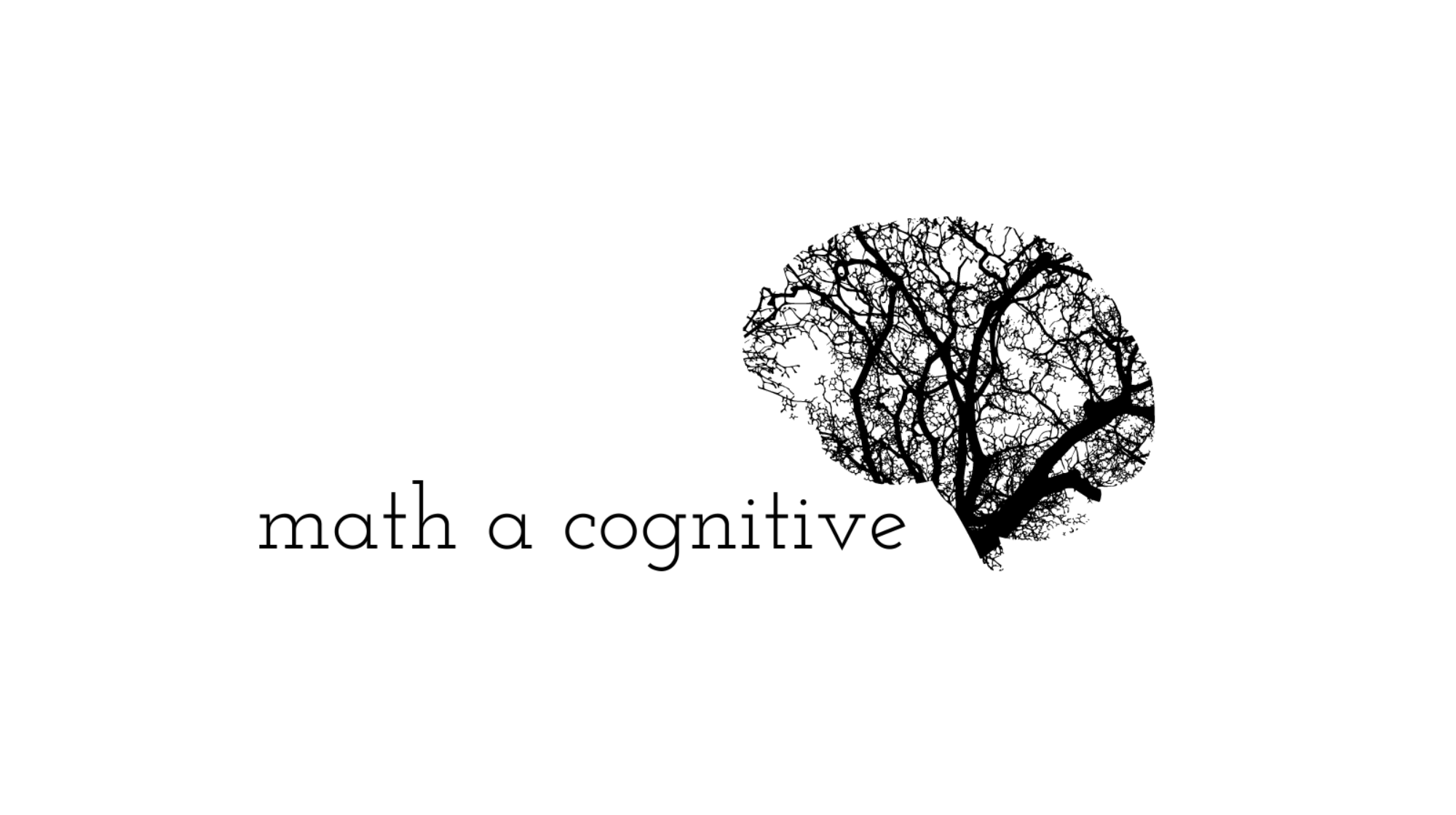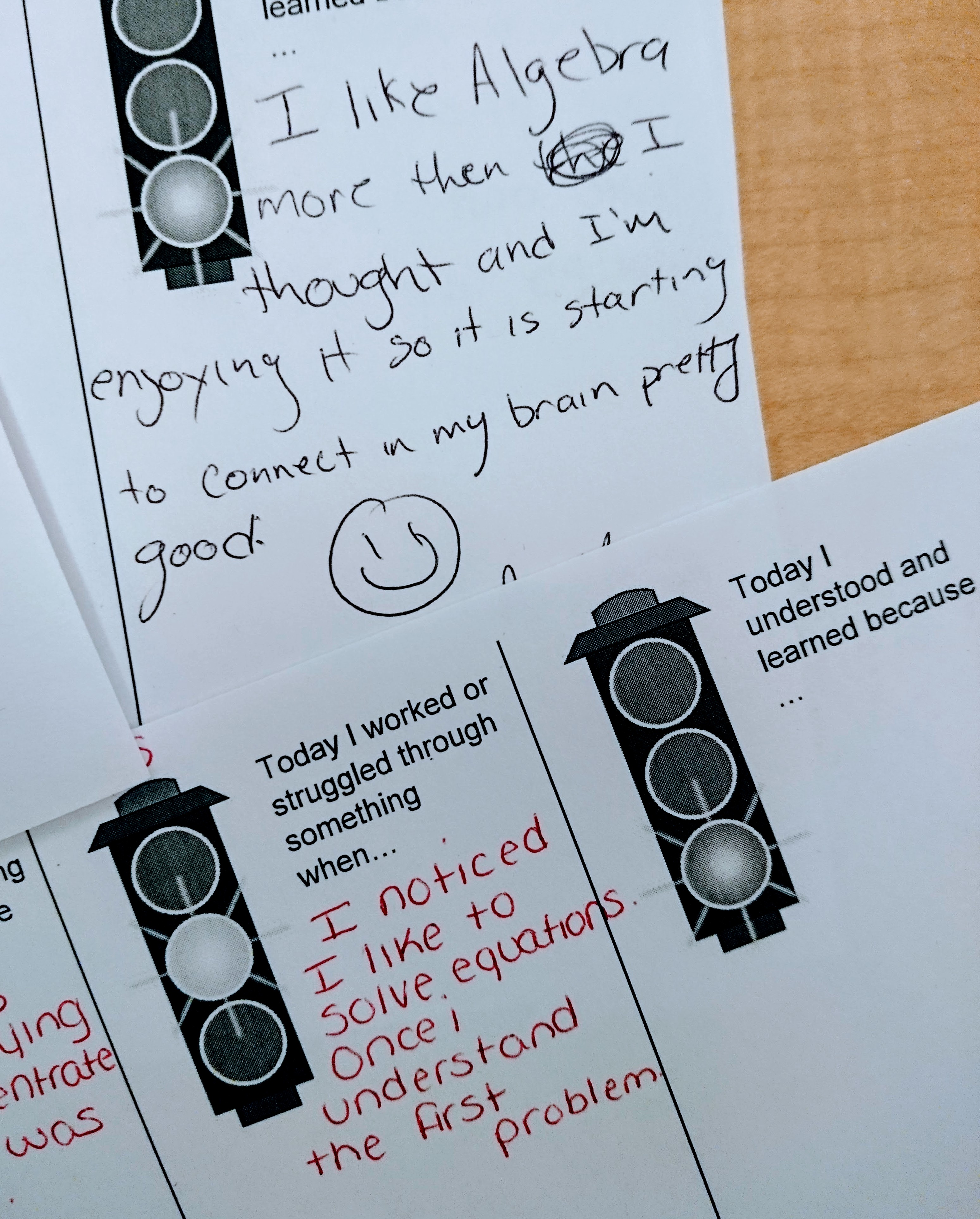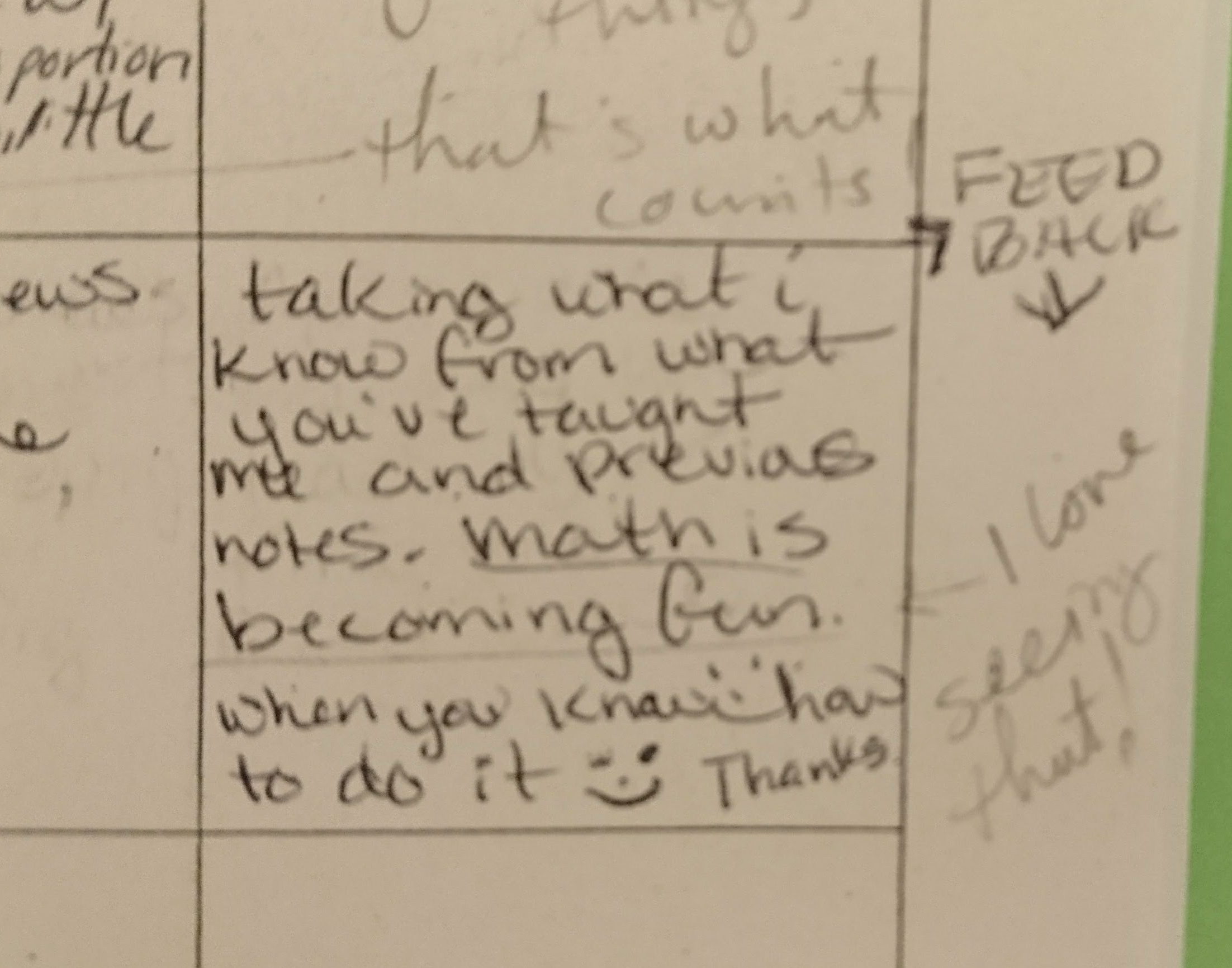As I’ve mentioned, my two primary math classes start every week with a cumulative review. It is a bigger commitment than most of the practices I describe here, but I think the impact is worth it.
In brief, my system is a short mixed review sheet that I make each week. I pick problems from a folder full of worksheets from the whole year, so that it is a constantly expanding cumulative review. Students know to work on the review when they first get to class, then correct it themselves and log their results. If they have extra time they work independently on any weak points the review sheet turned up.
I’ll be back with more details, in three parts
- How to stay sane while making weekly cumulative reviews
- Review sheets in action
- Implementation considerations
But for today, start with why.
We do it because…
- Retaining what you’ve learned is maddeningly difficult when you only have a few hours of math a week, and you spend the rest of your time thinking about other pressing non math things.
And because I got tired of students working hard in class to learn something, only to get to an end of term review or high stakes test (or the next weeks’ class) and realize they had forgotten it. This is discouraging for everyone.
- The brain science/pedagogy: recall practice and interleaving, low stakes formative assessments, the way it set up student-lead differentiated review. All good, research-backed pedagogical reasons.
- But really, because a student asked for it.
This student, D–, was one of my sweetest, favorite students. The kind who cheerfully worked away at a subject that baffled her, who kept at it despite setbacks, who’s going to make a great early childhood educator someday, and who paid attention to her own learning enough to know that she didn’t always retain what she had studied.
So, when she asked for review materials that combined of all of the math we’d covered, I paid attention. It was a good request, but not one I could easily answer.
The textbooks had a cumulative review at the end, but we hadn’t done every unit, so that wasn’t so helpful. And I didn’t have a custom one ready for her. Making a custom one would require digging back through all of the units we’d done over the last six months, and that would take time (which is always limited) I think/hope we did a review day soon after, but mostly I kept thinking about her request.
- And I do it because systems solve things. (personal philosophies…)
No, I didn’t have a stack of perfectly aligned cumulative reviews when she asked for them, but by September, I had figured out a system. We could have them going forward.


